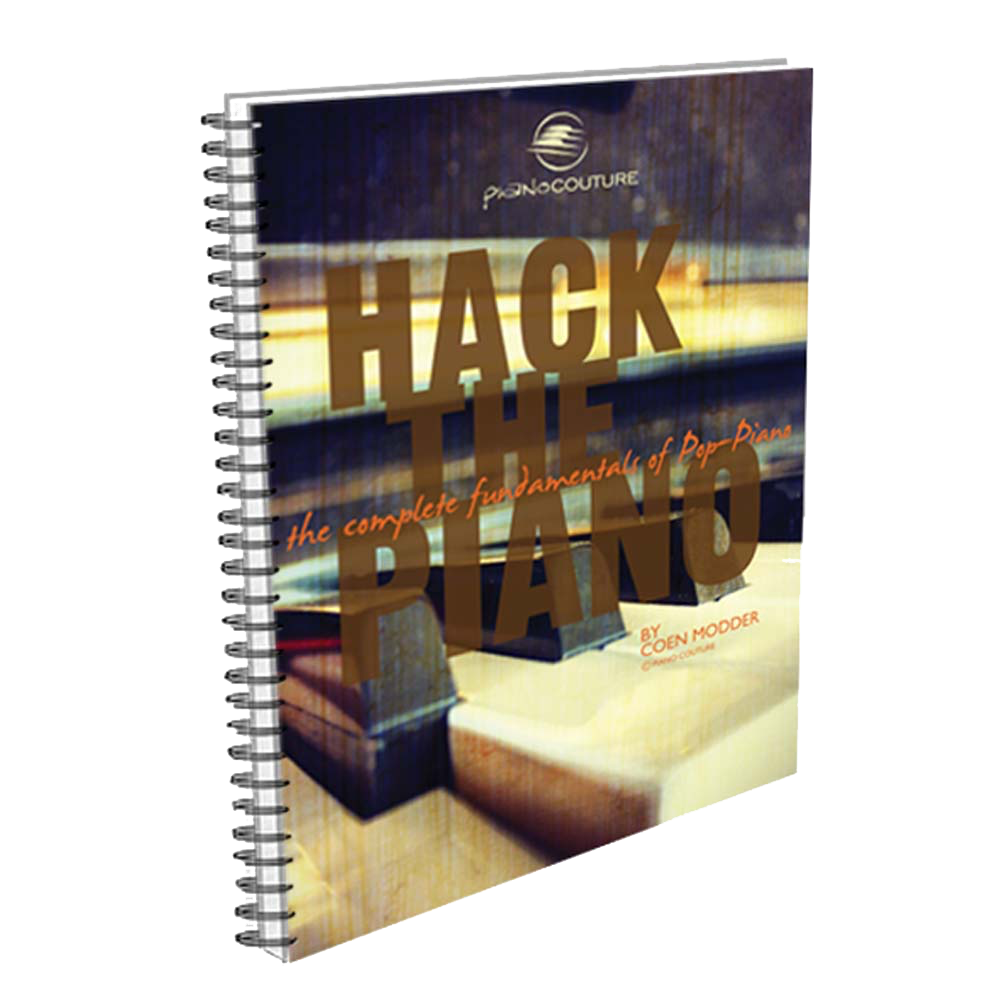Here I’ll talk a bit about the philosophy of alternation, thereby challenging yourself and how we can treat and leverage “growing into something” -“habitifying,” if you will- to actually make ourselves improve more effectively. We’ll look at how we can throw both our bodies and minds off-guard so they adapt to- and adopt a state of constant awareness, being surprised and ready to deal with the unexpected, in stead of falling back to a less receptive state of passivity by mindless repetition.
To quote what might very well be CrossFit’s most (in)famous mantra for being so ruthlessly effective as a training regimen – Routine is the enemy (but, to my own addition – Consistency your -best- friend).
Problem: We want to get the important stuff done, but often struggle to find the time in the first place, or get bored with mindless repetition, stagnating in progress and even risk the chance of losing motivation to follow through at all.
Catch: However effective a steady schedule (“routine 1” a.k.a. the “ritual”) might be for sticking to learning, training, perfecting and/or producing what’s most important to you, paradoxically, doing something over and over in the exact same way (“routine 2” i.e. “routinely”), is not the most effective and can even be counter-productive.
Solution: Schedule “task categories” which globally represent the things that promote growth – what needs to be done to perfect your skill, your body & life and doing your most important work – and make showing up for those your habits – your rituals.
Nugget 6: Routines vs. Rituals
The paradox of repetition and why consistency might be your best friend
We tend to be lazy creatures.
Doing the easy, relaxing, quick-fix-for-pleasure things, over what we know we should do – things that are beneficial to us in the long run – is such an easy trap to fall into.
Procrastination, indulgence, lust and similar hedonistic vices are hardwired in our very being and always lurking around the corner to suck us in and throw us off our “mission-track.”
Perseverance, motivation and discipline on the other hand -virtues to overcome said vices- require willpower, which only very few people seem to possess sufficient amounts of.
So how can we make sure we do what we know is best for us? The things proven to be the ones that – eventually – we’ll enjoy the most, like taking care of our bodies, eating healthy, doing meaningful work and perfecting our craft?
Planning can help.
Schedule everything you should (and deep down, actually want to) do, into a tightly packed “routine,” then?
Well, yes and no.
Oh fickle Routine thy
Routine is a fickle mistress, since in its right form it is almost vital in helping us stay on track.
However, the wrong form of Routine is one you might want to stay away from.
In most cases, that is.
Routine-forms
I like to distinguish two “main” forms of routines:
- Routine = a consistent, scheduled (sequence of) task(s).
- Routine = repeating something in the -exact- same way.
They’re closely related, but there is a very important nuance.
Where the first one refers to consistency – making sure you plan and set specific frames of time for important, global task-categories, effectively scheduling (which is vital for preventing any of the before mentioned vices from taking over) the second form refers to doing things “routinely.”
This is a form of -often mindless- repetition, which can only be beneficial at the very start offorming a new habit. Or, to a very limited extent, when performing mundane-yet-important tasks, like for instance brushing your teeth.
When, however, we’re considering anything where growth and progress are the goals, the underlying dangers that this second form of routine brings with it are well worth being aware of – and then avoiding.
Routine 1 vs. Routine 2 – Consistency vs. Exact Repetition
Consider this: you plan 20 minutes of workout every morning (routine 1), vs. planning 20 minutes of situps every morning (routine 2).
While the second is still pretty great (you are moving, improving your endurance and will likely get massive abs), your core is the only thing you’ll work on. This is not only pretty inefficient for getting into an overall good shape, but is likely going to lead to physical imbalance.
Much more effective for improving your general health (likely the main goal of this allotted training-time) would be to throw in some more exercises – the nuts and bolts of the overall “workout” task-frame – so you’ll strengthen your entire body.
Note though, that even a more varied but constrained “routine” consisting for example of situps + pushups + squats would still be less effective in the long run as opposed to varying between a dozen or more different exercises at random.
So, less routine-ly is better, right?
The first Routine paradox – Nuance
We find our very first bit of paradox in the fact that learning something, improving, requires repetition.
If you wish to improve on your instrument, playing a B major scale just once, then go over to an F arpeggio, play that difficult new part of the song one round before clapping some rhythms, wouldn’t be very effective at all.
Did you already go over the lick or should we first start with some random inversions? What oh it’s been only 2 minutes? I’ve done so much already!
Obviously, you should repeat what you want to learn and there is a nuance you should look for regarding the “routinely-ness” (the amount of -exact- same repetitions) of your routine.
So I’m not saying jump all over the place and completely change the thing you’re doing every 5 seconds, even if it’s still staying within the same “global” task-category.
What I am saying is that changing things up with minor adaptions within the scheduled task can massively improve results.
Although some things definitely lend themselves better for these changes than others (it’s easy to see how varying your workout routine will work wonders, where practicing scales might present you with doubts about changing it up), even with those tasks where changing it up seems less obvious, there’s always tiny adaptions you can make.
Play the scale a couple of times, but as soon as you feel that it starts to go automatically, change the feel, the beat, the order, dynamic accents, the tempo, or even -dare I say it- the actual scale. Keep doing the same thing, but just a tiny little bit different.
Challenge boosts results since it keeps the mind sharp, increases creativity and growth and change = challenge.
Just don’t make the changes too big and/or too often. That’s where the nuance lies.
As soon as you feel you are switching to auto-pilot, not keeping your full attention on the exercise while still performing it correctly, you’re set to make a tiny adaption.
The second Routine paradox – Start with the wrong form
But let’s create an even bigger paradox here: when you have a new plan, a new goal, a new resolution, a new mission and this is something completely new, start by implementing a routine that is very routinely.
When we aspire to do something great and make a change in our lifestyle to do so, this starts with- and is often built from multiple- small-step, bite-sized, but hugely powerful habits.
“We are what we repeatedly (thus: consistently) do, excellence then, is not an act, but a habit.”
Habits are powerful. They can -and will- be the small steps that take you to your goal one small, firm step at a time.
The first step however, is actually following through with these steps.
Habits are pretty damn hard to form, as you are probably well aware of (how often have you started a healthier diet, went to the gym or started another new undertaking in aspiration of reaching a goal – only to give up on it before getting there?)
Once they are formed though, they are much easier to sustain (brush your teeth every now and then, do you?)
Since the forming of a habit is so hard, it’s wise to remove as many risks for friction as possible.
Having to think about different variations, orders, what comes when and what could be done differently from the way you did it yesterday contributes to such friction.
So when you are just starting out, make it as easy as possible to follow through by doing exactly what I basically advise against here: perform your new task as routinely as possible, in the exact same way, with the same form and steps, for the first 20 days – so it can become a habit.
As soon as you’re used to showing up (that’s what actually has to become the habit) to do the task in the first place, it’s time to change things up.
The Ritual
When habits start sinking in and are being formed. When we consistently show up to do what we need and want to do to improve our lives, they evolve into something greater.
Due to the almost religiously-following-through nature of these scheduled, allotted time frames I’d like to suggest renaming what many tend to refer to as “Routines” – “Rituals.”
Showing up for 30 minutes of piano practice every morning at 7AM, is much more than a “routine,” right?
So let’s call it something more accordingly. They are your rituals. And you should guard them accordingly.
Varying within the global task category
When a habit is set, a time scheduled and a ritual formed, and we’ve been varying making micro-changes, we can even start to mix it up with “neighboring” or “relative” tasks within the global task-category.
Growing, becoming better at related skills, will improve your desired skill too. Arguably even more so than endlessly repeating that particular same thing.
Doing various different exercises will improve your overall strength, which in turn might improve your max 1 rep snatch (wtf is a snatch, you ask? ) – more so than practicing snatches only.
The benefit of occasionally NOT stepping into the gym, but in stead work on your endurance by running a few miles, is an example of improving your snatch with a neighboring skill.
Doing some ear-training in stead of your regular technique-practice to improve your overall musicality, is another.
Conclusion – Why routine is the enemy
To learn something, you have to repeat it. Sure.
To create something, produce work on a consistent basis, you have to repeat certain aspects. Especially those that work. That are efficient. Yes, absolutely.
But there is a line, a limit, that is absolutely vital to keep in mind, if you are looking to maximize your productivity and growth.
Routinely is in fact not efficient.
Where creating a “routine” as in scheduling the activity that you want or need to do is based on consistency, we’re forming a “ritual,” within which you can make variations in execution, with benefits:
- Engagement (vs. boredom)
- Open-mindness (the beginners mind vs. the rigid mind)
- Awareness (vs. mindlessness, where the former puts your mind in a much more “sponge-like” state for learning)
- Alertness (vs. dullness, where the former trains you to be on your toes and ready for -unexpected- changes being thrown at you)
- Challenge (which constitutes for all the above)
- Learning faster (challenge = progress)
Throwing yourself off-guard is not only a much more effective way of learning and training, it’s also much more engaging and thus, in the end, more fulfilling.
Doing the same thing in the exact same way every time unfortunately isn’t an efficient approach for developing skill and creativity. We need the variation. We need the challenge.
On top of that, routinely won’t condition you for the real world, where unexpected things and changes are bound to happen.
Why we need rituals
- Skip the obstacle of planning (you are your own worst enemy when it comes to NOT doing what you need to do – plan it, schedule it and you’re much more likely to stick to it)
- Do what’s needed first (It’s amazing how good you feel afterwards, and you’ll have mentally won the day already when you schedule your things early)
- Snowballing (positivity and success attract more of the same)
- Habitifying (that’s what we’re after, that’s what makes those “super-human-achievers” just that – they have created habits that they don’t have to think about showing up for anymore – one tiny step at a time)
The larger-scale takeaway & getting practical:
“We are what we consistently do”
This is the most important, the positive side, of this two-folded “Routine” story: Schedule the things that need to be done to be who you want to be and reach the goals you have set for yourself, but create it into something more than a drill-like repetition. Create Rituals. Within those, you can vary.
When you allocate time in your schedule to “writing,” maybe try to change the scenery, the music. Are there more things you are writing on, maybe divide your Pomodoro blocks into 2 different things (2 Pomodoros on the one, 2 on the next) or write about one thing the first day and on something else the next, to prevent depletion and boredom on the one subject.
When you wish to embark upon a new life-mission, like getting more healthy and in shape, which you’ll make measurable by making the goal “dropping 10 pounds,” you could a morning health-ritual, installing multiple micro-habit steps.
- Do 10 squats right upon waking.
- Drink a glass of water.
- Drink a (green?) smoothy.
- Do 10 pushups.
- Take a cold shower.
- Go for a brisk walk.
As you see most of the above habits are so small, that you might argue they don’t leave room for much variation, but I bet you can see that even such micro habits, can be varied with/within for max benefits –
- Why not start with the pushups today?
- Sprinkle some lemon juice in it today, then maybe some Apple Cider Vinegar tomorrow.
- Today I’ll go for red.
- Let’s do the squats now.
- Went in head first today.
- Go out the door in the opposite direction.
As mentioned, even the fact that variation prevents boredom is valuable enough to make these tiny changes.
Schedule what needs to be done, but stay flexible in approach and execution.
More / Relating reading about this:
- Flow – Mihaly Csikszentmihalyi
- Mastery – Robert Greene
- The Art of Learning – Josh Waitzkin
- Start Now, Get Perfect Later / Routine = Results – Rob Moore


